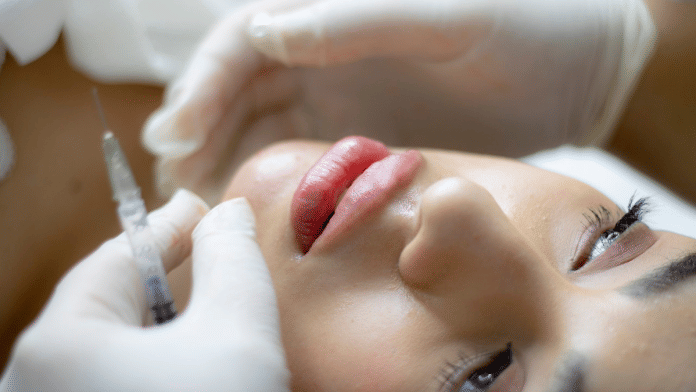A 30-year-old man in Delhi lost his life after a botched hair transplant last year. This incident was the third such case reported in the country since 2019. How is it that India has experienced multiple deaths following a procedure that statistically boasts one of the lowest mortality rates in the world? The answer lies in unregulated procedures.
Similarly, a woman in Mumbai recently filed an FIR against a beauty parlour following a HydraFacial that resulted in burns and permanent skin damage. The parlour’s use of non-standardised products was cited as the cause of disfigurement.
To understand why India has turned a blind eye to these senseless deaths and injuries, we must recognise the surge in new-age treatments, the insufficient training of practitioners, and the thriving yet highly unregulated industry.
For instance, hair transplants, as per the Indian Clinical Medical Council (Professional Conduct, Etiquette, and Ethics) Regulations 2002, are considered surgical procedures. Only qualified medical experts with a degree in medication and surgery, with a valid medical licence, are authorised to perform them. Moreover, these procedures must be conducted in licensed hospitals or clinics equipped with the required infrastructure and medical facilities. Clinics licensed for hair transplant surgery undergo a rigorous accreditation process set by the National Accreditation Board for Hospitals and Healthcare Providers (NABH) and the Joint Commission International (JCI). These associations set guidelines to protect patients and guarantee the expected minimal standards of safety.
This is the primary flaw in the current Indian system: hair transplants are not only being performed by non-medical professionals but also by technicians lacking any medical background. Additionally, upscale salons and aestheticians advertise hair transplant surgery as an attractive offer, without having to worry about facing any regulatory body censorship. Setting up a National Medical Register that lists qualified dermatologists and plastic surgeons capable of performing hair transplant procedures would be a crucial step toward patient awareness and advocacy.
Similarly, salons that offer new-age treatments such as the ‘vampire facial’ (PRP treatment using the customer’s plasma) and other facials require an expert understanding and educational qualifications from aestheticians to ensure safe and hygienic procedures. As a dermatologist, I have lost count of the number of patients who sought treatments to improve their appearance but left with both physical and mental damage.
Also read: Hair transplant surgery can give you allergies, shock, even sepsis. Know your doctor first
The grey area
The Clinical Establishment Act was a sigh of relief for dermatologists. It was the first step in ensuring that clinics set up for specialised treatments maintain minimum standards of care and safety for their patients. This would mean that any procedure requiring technical know-how can only be performed by a dermatologist or a plastic surgeon, limiting the chances of a technician stepping in for a dermatologist, a common practice in some clinics.
A grey area persists in the beauty industry. Treatments such as acne laser treatment, laser hair removal, blackhead or whitehead removal, etc., demand a level of expertise and understanding that can only be fulfilled by a medical professional. However, due to the absence of a regulatory body, any beauty parlour with sufficient capital and advertising reach can lull their customers into getting procedures that, if gone awry, pose risks of permanent deformity. Not only for treatment, but a proper inventory regarding the purchase and use of this equipment should be enacted, with caveats in place requiring the valid medical licence of a dermatologist or plastic surgeon for the purchase.
For a country making significant strides in outer space, we have woefully overlooked essential steps on Earth. The machines used in clinics are either built in China or assembled there, even though the potential of a home-grown machinery industry remains untapped. However, even with improved machinery, we must aim to ensure that they will only be used by trained and certified individuals. One way to bridge this gap would be to set up a standardised certification course by the government to train aestheticians and technicians would help them perform skin treatments and understand the associated risks.
Until we crack down on the unregulated flood of procedures done in any parlour within a stone’s throw or a clinic with no scruples, we will continue hearing heartbreaking accounts of women and men walking in for a confidence boost but walking out with their lives drastically changed— knowing all the while that it was preventable had we made sure nobody compromising the safety and well-being of people could get away with it.
Dr Deepali Bhardwaj is a dermatologist, anti-allergy specialist, laser surgeon and internationally trained aesthetician. She tweets @dermatdoc. Views are personal.
(Edited by Prashant)







Thanks Dr for your suggestion
Very nice article
Even the mental health space has similar issues
Every one considers themselves as ‘counsellors’ just because they talk a lot and they presume that they have got enough experience from life which is good enough to educate others
Since the word ‘counsellor’ is abused that way, people have lost their trust on trained psychologists too because they presume everyone falls into the same category!